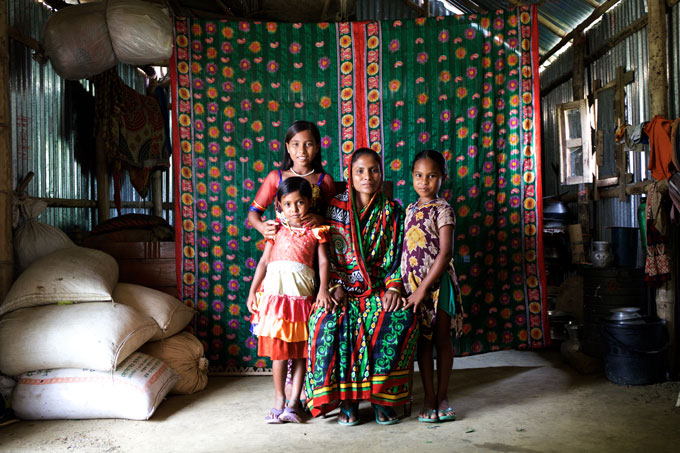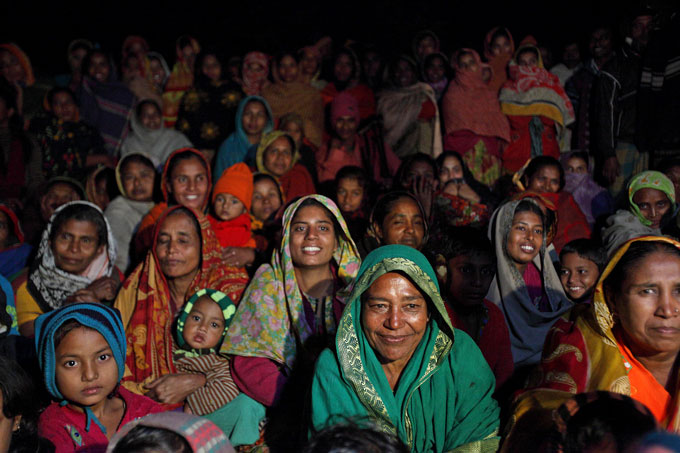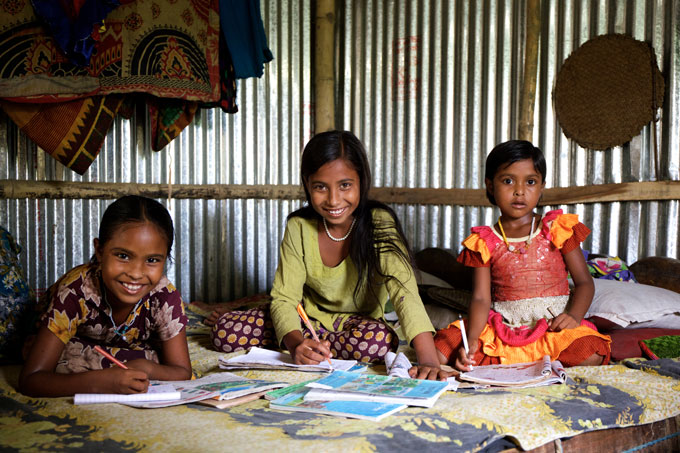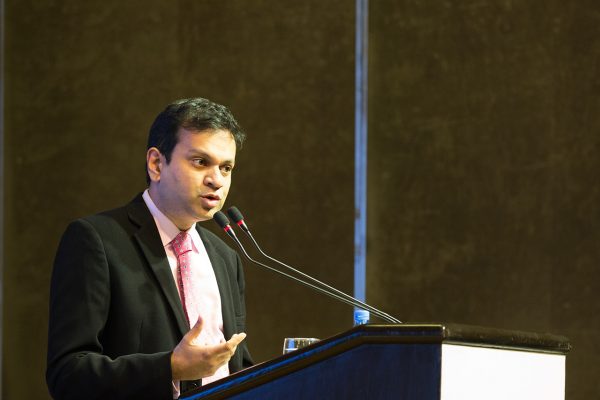No tragic hero
Reading Time: 2 minutes
But as soon as night falls, she replaces her sari with a colourful salwar kameez and swaps the bucket on her arm for a row of shiny bangles, ready to take the stage. Alpina acts in a popular theatre group that regularly travels across the northern villages of Bangladesh.

Alpina Begum lives in the village of Nurpur in Netrokona of northern Bangladesh.
By day, she does the usual: tending to the vegetables in her garden and cooking for her three daughters.
But as soon as night falls, she replaces her sari with a colourful salwar kameez and swaps the bucket on her arm for a row of shiny bangles, ready to take the stage. Alpina acts in a popular theatre group that regularly travels across the northern villages of Bangladesh.
On stage, her voice resounds with hope and passion, about gender equality and social justice. Her performances speak out against violence against women, child marriage and the need for all women and men to come together to build a better society.
Theatre and the spoken word for social change have existed for centuries, dating back to ancient Greece. What makes Alpina’s theatre group different is that it is run by the community people- from the suburbs to the remotest villages- who package and perform drama in the local dialect, based on stories from real life. Over 4 million people from across rural Bangladesh gather to watch these shows every year.

Audience at a popular theatre show in Netrokona.
The colourful stories that Alpina performs are rooted humbly to her own experiences, for she was once on the receiving end of the sort of violence she performs on stage. She had suffered when her husband deserted her, leaving her to take care of their three daughters and forcing them to share a single room at a different house.
It was only much later that she realised that the physical abuse she had endured for so long at the hands of her husband was a punishable act. There are two reasons why Alpina says she did not speak out earlier; she was missing the right information and more importantly, she was missing the sense of entitlement to her own rights. Alpina armed herself with legal information through a community self-help group and filed a complaint against her husband.
Alpina wanted to give her daughters the gift that she had always wanted – education. As her small farm and her theatre career flourished, the first investment she made was admitting her three daughters in school.

Alpina is one of 4,300 performers in a network of 430 popular theatre groups across the country. The groups include local folk artists, teachers, doctors, students and housewives- optimists who dream of better societies. Using artistic talent to fuel change, their voices resound with hope and passion, about gender equality and social justice.
Alpina’s story is one that she crafted entirely on her own. On stage, the audience’s eyes shine with excitement and laughter as she tells her story. At home, her daughters’ eyes shine with the pride of all those eyes looking up to their mother.
Zaian Chowdhury is a communications consultant at BRAC.





